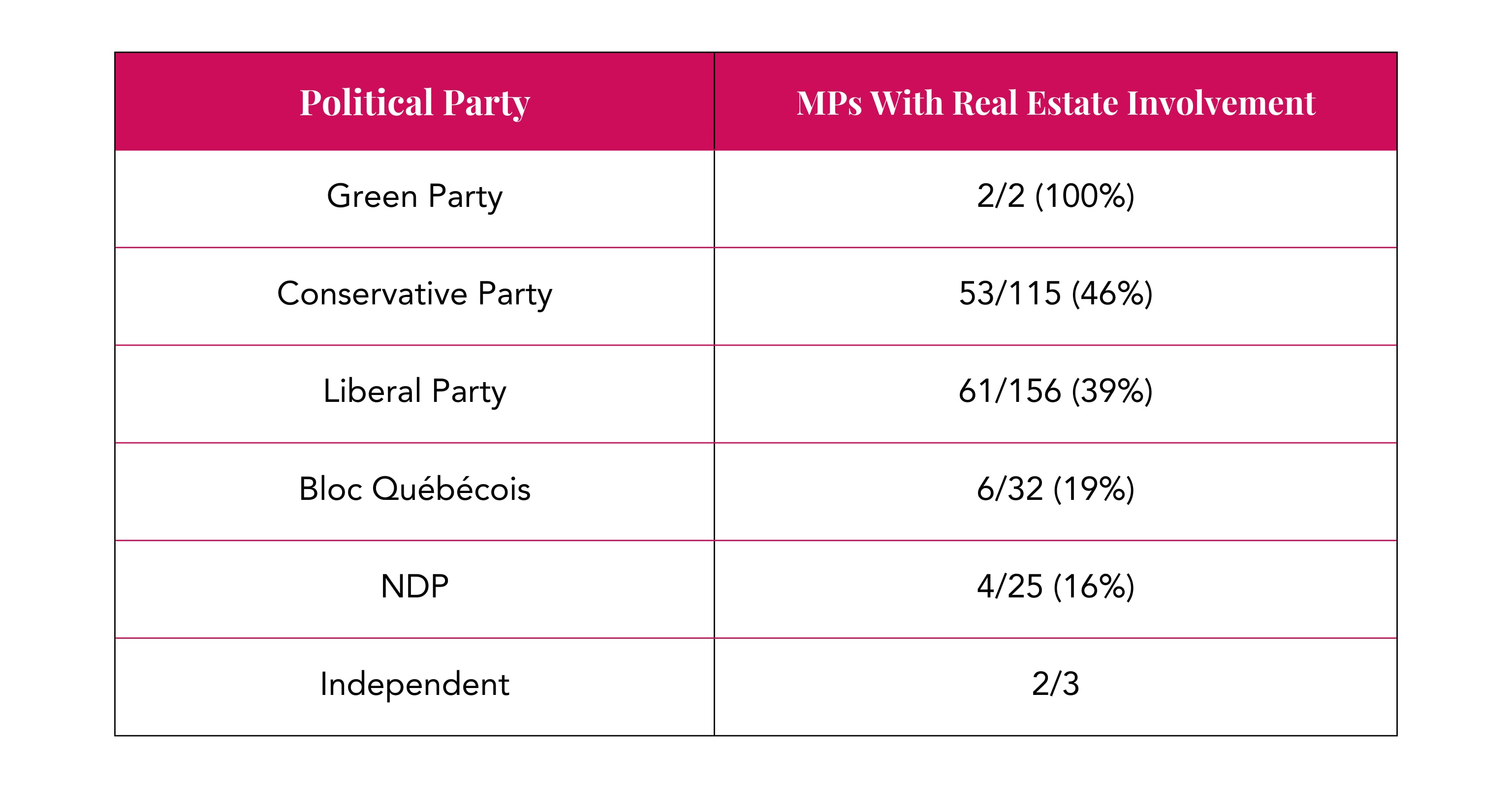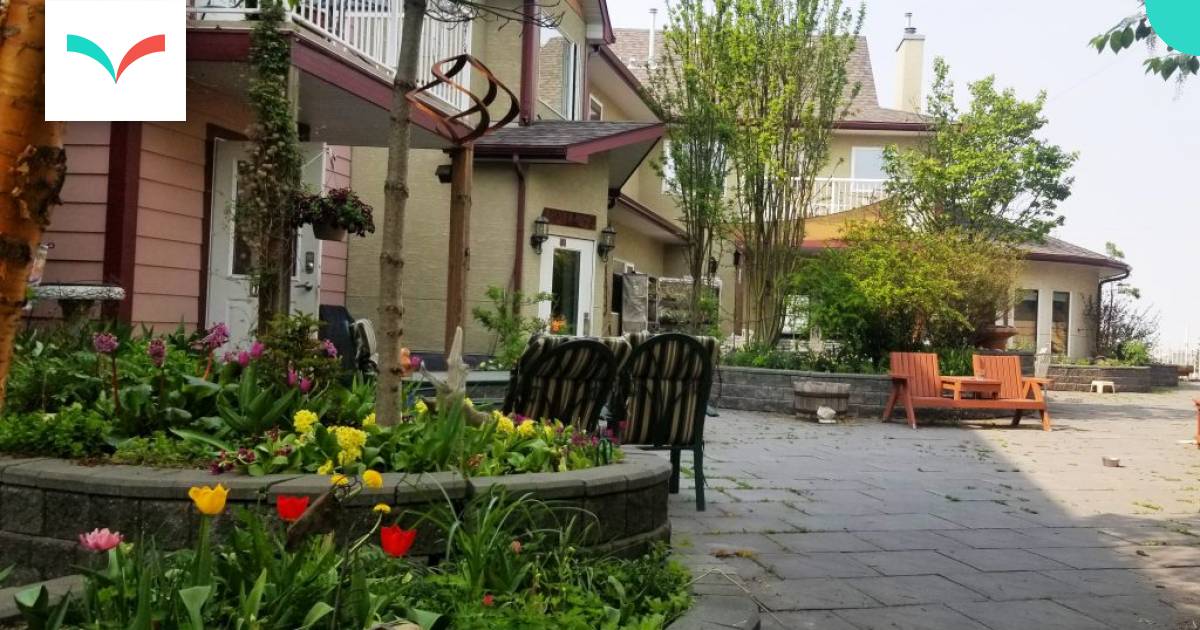Because there’s a profit to be made.
Every penny of yours isn’t theirs yet, so their work isn’t done.
This is the problem. Source

Those percentages are pretty low. What does “involvement” mean?
The source I included above says this:
We have gone through these disclosures and identified which political representatives, and/or their spouses/common-law partners/dependents, fit into one or more of the following categories: 1) disclose residential rental property that they earn an income from; 2) disclose residential rental property without disclosing any income; 3) disclose non-residential property (vacant lots, farmland, etc.); 4) disclose some sort of other involvement in real estate (for example as a real estate agent, or with investments in real estate investment trusts).
So 128 MPs have some sort of involvement in real estate.
It feels like solving the housing crisis is as simple as universally allowing 4-plexes in existing single-family zoning (and, ideally, relaxing zoning height limits to allow these to actually be built on smaller lots), and funding the development of cooperatives.
How many single-family homes do we need? I get that it’s nice to not worry about making noise for neighbours, but it’s more important that people aren’t forced into homelessness.
Maybe I’m just naive and it’s more complicated than this, but at least this would be a start.
It feels like solving the housing crisis is as simple as universally allowing 4-plexes in existing single-family zoning
If you simply increase population density without addressing car dependence then traffic will get much worse than it is now. It is thus imperative that we allow for everyday necessities to be doable within a walking distance of where people live, so that people have the choice to avoid using their car for every single daily activity if they don’t want to. This entails at the very least having grocery shopping, schools, retail commercial spaces and pharmacies/clinics within a walkable distance.
Around the world this is typically achieved by allowing commercial activity on the street-facing ground floors of buildings.
Absolutely. We need those changes, too. 15 minute cities need to be our future.
I mentally partition that as a bigger societal change separate from the housing crisis, but of course they’re tightly interrelated.
They are indeed tightly interrelated because one of the big reasons why people want to live in the suburbs is in order to be away from traffic, which is tragic because those car-dependent suburbs are a big reason why there’s so much traffic in our denser areas. With better urbanism the denser areas become much more liveable for those of us who have no choice but to live there.
This means we need to address the housing crisis in a holistic fashion: housing, transport, daily errands and recreation all come together in a well planed urban area.



